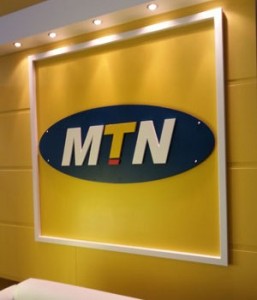The telecoms regulator, Nigerian Communications Commission (NCC), last week in Lagos revealed it has further given licences to additional two Infrastructure Companies (InfraCos) to wire up more regions with metropolitan Fibre Optic Cables (FOC) to drive broadband penetration.
Otherwise, added to MainOne Cable Company and IHS Group, who in the last two years, won the bids for Lagos and North Central regions respectively, the NCC announced during Stakeholders forum on presentation of findings on cost based study for determination of Mobile Voice Termination rates held at Digital Bridge Institute (DBI), Lagos that in December 2017, it licensed Zinox Technologies to cover the South East and Brinks Integrated Solutions Limited for another zone.
The Executive Commissioner, Stakeholder Management at NCC, Mr. Sunday Dare, who spoke on the sidelines of the forum said the licensing of the remaining infracos would be completed by the end of this month.
According to him, “Brinks Integrated Solutions Limited was approved in December and Zinox for the South East. Out of seven, we have four ready. Before the end of February, the remaining three will also be fully licensed. And of course, we also know that MainOne has been working and the other three will join before the end of February”.
The development means that the four telecom companies will provide broadband infrastructure in four zones and Lagos State have been issued permits as part of the National Broadband Plan of the Federal Government.
Business Hilights recalls that IHS and MainOne, had since 2015, emerged winners of the bid and were authorised to lay metropolitan optic fibre for the North East and Lagos region, respectively under the Open Access Model.
However, since 2015, both MainOne and IHS have been battling states government in getting seamless access to Right of Way (RoW), flexible tax regimes and issues in vandalization without any clear headway.
The NCC had some months back engaged some states government on the matter with poor results as it has been very difficult for states to buy the idea that InfraCos are not as rich as thought by states so as to pay per meter, the taxes given to them to access the highways and roads on which the cables will be laid.
Already, several industry players had criticized the Minister of Communications, Adebayo Shittu, for not doing much in getting the governors understand that InfraCos need to deploy FOC in order for the country to be line with broadband deployment and the needed penetration.
Even as the remaining three zones wait for their InfraCos, there are indications that many of the licensees are finding hard to take off.
Nigeria has set 30 per cent broadband penetration at the 2018 target, but the encumbrances’ frustrating the technology deployment efforts by InfraCos are being hampered by myriads of factors which are yet to be addressed after all.









